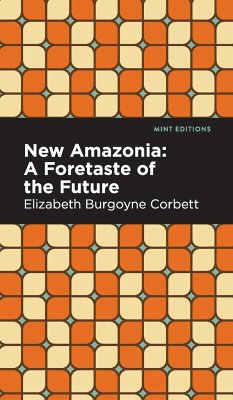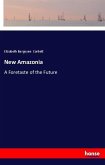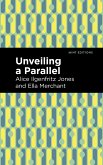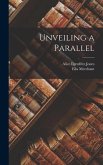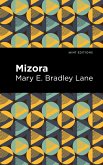New Amazonia: A Foretaste of the Future (1889) is a novel by Elizabeth Burgoyne Corbett. In June 1889, British novelist and President of the Women's National Anti-Suffrage League Mary Augusta Ward published her reactionary essay "An Appeal Against Female Suffrage" in The Nineteenth Century. In response, Corbett penned New Amazonia, a feminist utopian novel which depicts the emergence of an advanced society of women in the not-so-distant future. While little is known about Corbett, her surviving novels and stories suggest she was a passionate campaigner for women's suffrage in an era of conservative politics and traditional values. "'This country is New Amazonia. A long time ago it was called Erin by some, but Ireland was the name it was best known by. It used to be the scene of perpetual strife and warfare. Our archives tell us that it was subjugated by the warlike English, and that it suffered for centuries from want and oppression.'" Having fallen asleep for hundreds of years, a Victorian man and woman emerge to a vastly different world. Following a devastating war between Britain and Ireland, the British repopulated their colony with women deemed to be surplus. On New Amazonia, these women came to control all aspects of government and culture, leading to the eradication of corruption and oppression. Scientifically advanced, the Amazonians have developed a technique for strengthening the human body and increasing the lifespan of women by hundreds of years. Mesmerized by what she finds in this fascinating new world, the narrator records her reactions alongside those of her male counterpart, who remains openly hostile to the Amazonians throughout. For its depiction of an advanced matriarchal society and celebration of feminist ideals, New Amazonia: A Foretaste of the Future remains an important early work of utopian science fiction. This edition of Elizabeth Burgoyne Corbett's New Amazonia: A Foretaste of the Future is a classic of feminist utopian fiction reimagined for modern readers. Since our inception in 2020, Mint Editions has kept sustainability and innovation at the forefront of our mission. Each and every Mint Edition title gets a fresh, professionally typeset manuscript and a dazzling new cover, all while maintaining the integrity of the original book. With thousands of titles in our collection, we aim to spotlight diverse public domain works to help them find modern audiences. Mint Editions celebrates a breadth of literary works, curated from both canonical and overlooked classics from writers around the globe.
Bitte wählen Sie Ihr Anliegen aus.
Rechnungen
Retourenschein anfordern
Bestellstatus
Storno

